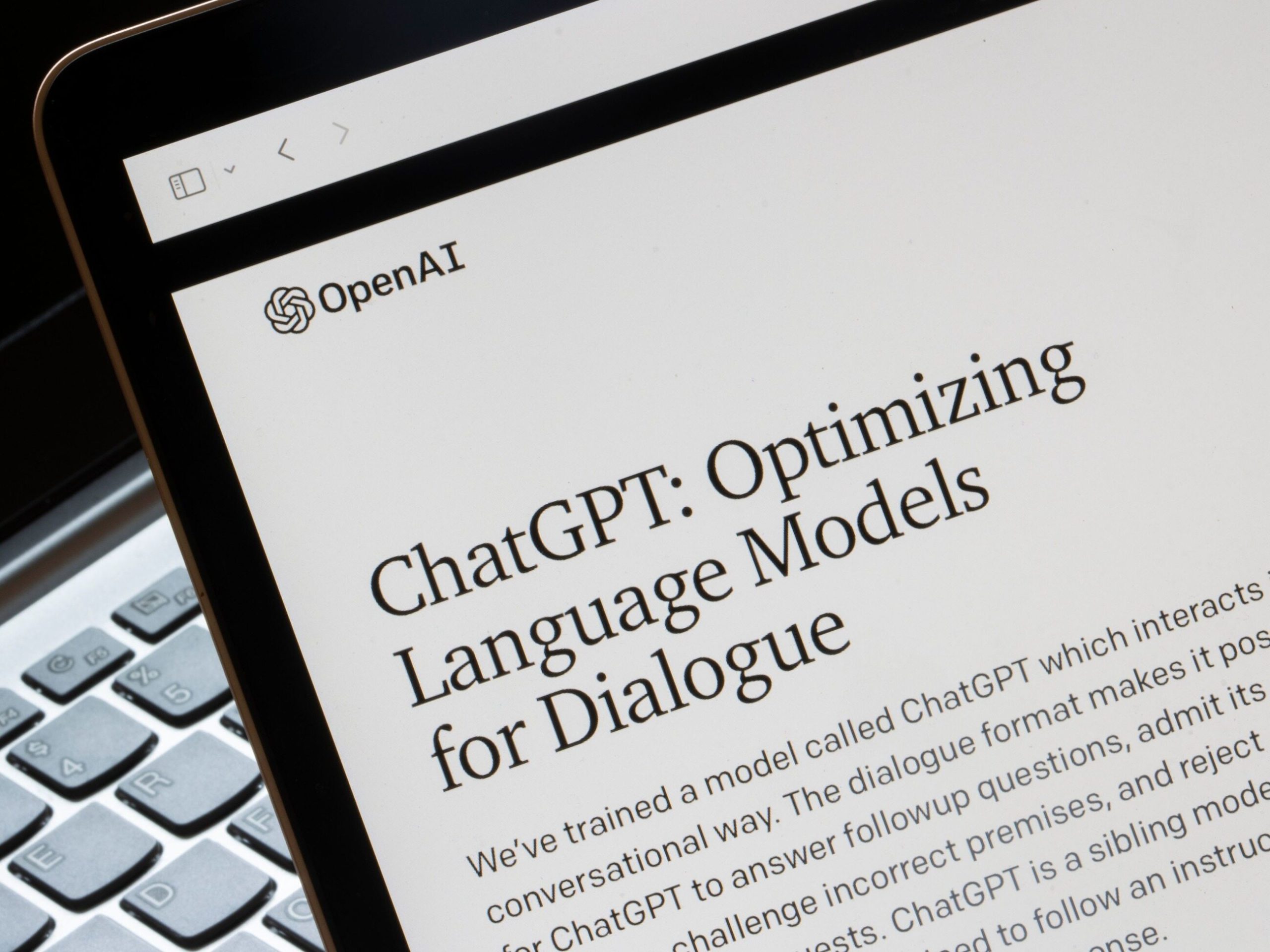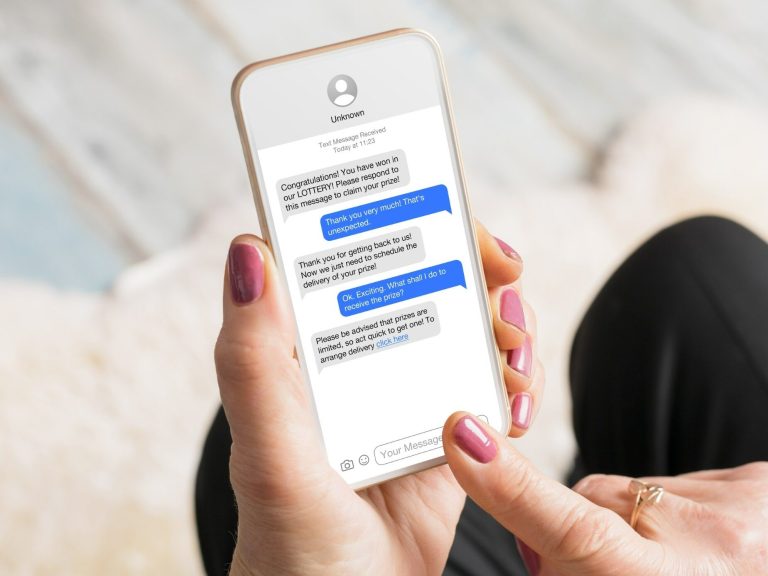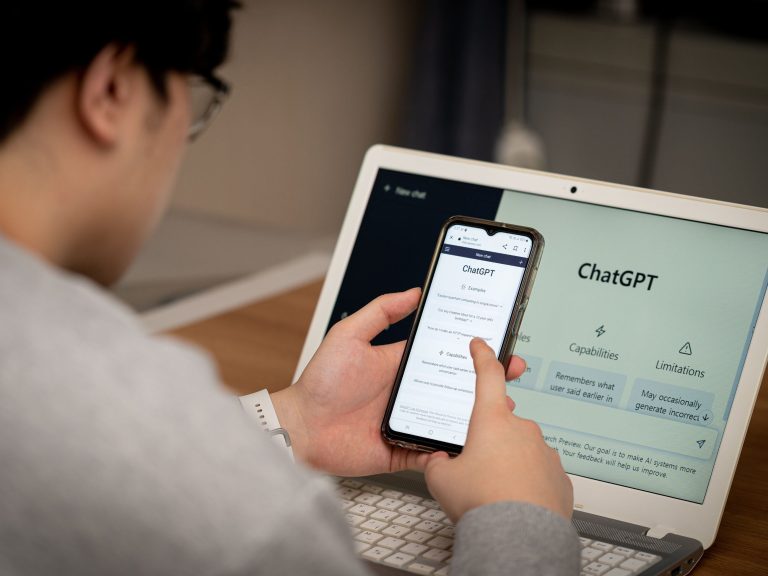Studies in the age of artificial intelligence. Will ChatGPT replace the teacher?

The premiere of ChatGPT caused quite a stir. Although artificial intelligence has a huge amount of information, it still does not have all the characteristics of a good lecturer. But something has changed. – There is already talk of the death of essay, i.e. the death of the form of an essay. Open questions are a thing of the past – says “Wprost” prof. Jan Fazlagić from the University of Economics in Poznań.
At the beginning there was (information) chaos and many unknowns, and then came the time of dynamic development of technology. The second half of the 20th century was a period when computers increasingly responded to the challenges posed by scientists. Efforts were made to create a machine that would surpass humans in some areas. At the same time, people wondered if they would ever be able to fully replace him.
The father of artificial intelligence (AI) is considered to be Alan Turing, who in the 1950s worked on “thinking machines” at the Dartmouth College campus in the USA. The Turing test developed by the mathematician was supposed to prove whether they have sufficient abilities to imitate humans.
The beginnings of artificial intelligence
At the same time, the definition of artificial intelligence was being shaped. It was developed by American computer scientist John McCarthy. He argued that the way AI works is “the process by which a machine behaves in a way that we would call intelligent if a human behaved that way.”
Even then it seemed that the coming years would abound in many achievements in this field, but the artificial intelligence we are dealing with now had to wait. When it finally happened, it turned out that ChatGPT, presented in November 2022, stirred up a lot. Many American universities almost immediately blocked access to OpenAI’s flagship product, which surpassed one million users in just five days.
– Contrary to appearances, ChatGPT is not an oracle. It has gaps in knowledge that a human being, above all an expert in a given field, is able to identify. Artificial intelligence is not only intelligent in terms of the content it conveys, but also in terms of the forms it conveys. AI simply sells itself well by using sophisticated language, often answering quite trivial and simple questions. In colloquial language, a person, even a university professor, uses simple terms, while the answers generated by artificial intelligence often evoke laughter when a simple question is answered with an argument straight from a doctoral thesis. He often avoids answering and does not admit that he simply does not know or does not have access to this area of knowledge. Instead, he claims that “there is not enough evidence” to undermine, for example, the existence of a theory – points out prof. Jan Fazlagić from the University of Economics in Poznań.
Soon after the premiere of the chatbot, fears arose that students would use technology to effortlessly gain the next level of education. Erich Fromm wrote about such a lack of effort and pain in his book On the Art of Existence. The philosopher drew attention to the human attitude, according to which the process of acquiring skills should take place with the least possible effort. “The era of modern progress sets itself the goal of bringing man to the land of the promised existence without pain,” he claimed.
“AI is inseparably associated with reducing the level of effort”
The connection between Fromm’s words and the possibilities brought by artificial intelligence is written by the authors of the monograph of the Educational Research Institute entitled Artificial intelligence (AI) as a megatrend shaping education. In their opinion, AI is inseparably associated with reducing the level of effort, which causes a discrepancy between the purpose of using artificial intelligence, which is to reduce human effort, and the biological requirement to engage effort in the learning process.
It quickly turned out that the reaction of universities across the ocean was a bit exaggerated. Some British universities limited themselves to warning students against thoughtless use of AI. Interestingly – as we can read in the MIT Technology Review – the fear caused by the “unexpected” advent of artificial intelligence contributed mainly to the rapid increase in its popularity. Students learned about the existence of ChatGPT e.g. due to this ban.
– ChatGPT is less versatile than a human, it does not understand the context of the statement. There is a credible theory that says that the highest level of perfection in a given field is the ability to teach another person. We also know the characteristics of a good teacher from research. ChatGPT has been tested to meet this list and found to have only a fraction of these features. He lacks empathy, cannot remember everything that has come up in a conversation before, or assumes that something has happened. This leads to misunderstandings. In addition, a real teacher sees how tired the student is, and each subsequent question takes him away from the goal and discourages him from further work. GPT does not have such an ability – says “Wprost” prof. Fazlagic.
What is missing from artificial intelligence?
According to the latest research, nearly 32% of of surveyed students in Japan admitted to using generative AI such as ChatGPT. The situation in the United States is somewhat different. More than half of the 1,000 teachers participating in the February study admitted to using the OpenAI chatbot, including 10 percent. – every day. The study also showed that 1/3 of students checked ChatGPT’s capabilities. Almost all (88% of teachers and 79% of students) stated that it had a positive impact on their work.
The majority of teachers and students surveyed in the study commissioned by the Walton Family Foundation also agreed with the statement: “ChatGPT is another example of why we cannot continue as before in the modern world.”
What does ChatGPT itself think about this? “While artificial intelligence plays an increasingly important role in education, it is unlikely to completely replace teachers in the foreseeable future. (…) However, AI can support and enrich the process of teaching and learning. It can be used as a tool to support teachers by providing personalized learning materials, analyzing student progress data, automating administrative tasks or providing additional resources. AI-based education technologies can help create more adaptive and interactive learning environments, but they are most effective when used in collaboration with teachers.
ChatGPT admits that it will not replace the teacher. Are you sure?
It also turns out that ChatGPT is well aware of its own competences regarding education. Among its advantages, he mentions:
-
24-hour availability, 7 days a week and in any place of your choice;
-
providing personalized and adapted to the level and learning style of students content;
-
the ability to analyze students’ progress and adapt to their individual needs;
-
immediate response;
-
the ability to track student progress and provide feedback to teachers on their achievements and areas that need additional support;
-
access to a variety of resources.
Among the concerns of teachers there is the issue of excessive or even dishonest use of ChatGPT. However, the answers provided by artificial intelligence can be used as a guide or starting point for further analysis, not as a ready-made solution. The issue of learning critical thinking is also important, because ChatGPT is not always right. As he explains, his knowledge (or ignorance) results from the database on which he is based.
Will open questions be a thing of the past?
“While I try to provide as accurate and up-to-date information as possible, there is a risk that some of it may be incorrect or outdated. I always recommend checking important information from reliable sources or consulting an expert in a given field, especially in the case of critical decisions or topics that require detailed knowledge.
The expert points out that artificial intelligence is very “field-specific”. – He can recognize a human face better than a human. This means that it is better than a human only in this narrow area, and human life is not limited to recognizing faces. Contrary to human intelligence, artificial intelligence of erudition, i.e. the ability to navigate very wide areas of knowledge and information, is still lacking. Artificial intelligence must be very unambiguous in its diagnoses and answers, while experts resort to irony – says prof. Fazlagic.
It turns out that there are areas where AI works well. So how should teachers and lecturers change the way knowledge is verified so that students do not take the easy way out?
– In order to test the knowledge of students, I refer to the content of the lectures, not to excerpts from the textbook. AI does not know the answers to such questions, because she did not participate in the classes. The knowledge I check is, on the one hand, very related to the subject of the subject, but on the other hand, very contextual; refers to examples given in class illustrating specific theses. In this way I test the level of comprehension, and at the same time make the answer to a given question extremely difficult for GPT-4. My experience shows that the most urgent solution for the education system is the development and implementation of such methods of knowledge testing. In a way, this is a return to the historical roots of education, when students gathered around their professor just listened to what he had to say, without any distractions. If we go in this direction, students will naturally adapt to the ways of verifying knowledge. Perhaps thanks to artificial intelligence, the method of examining knowledge in the form of an oral exam, put aside some time ago, will return to the sidelines – argues prof. Jan Fazlagic.
The expert points out that in this context there is already talk of the death of essay, i.e. the death of the form of an essay. – Open questions, which until recently were used to check the level of knowledge, are now a thing of the past. Perhaps we need to return to test forms, but more complicated ones, with non-obvious answers – he assesses.
However, in order to answer the question of how artificial intelligence will affect us, how it will contribute to the development of young people, many years of research are still needed. – For now, there is not enough data, because we have been dealing with ChatGPT for only a few months. Long-term effects are hard to come by. The brain is shaped in the face of challenges and problems. Where GPT appears as a form of facilitation, it may harm development, he concludes.






